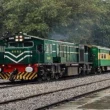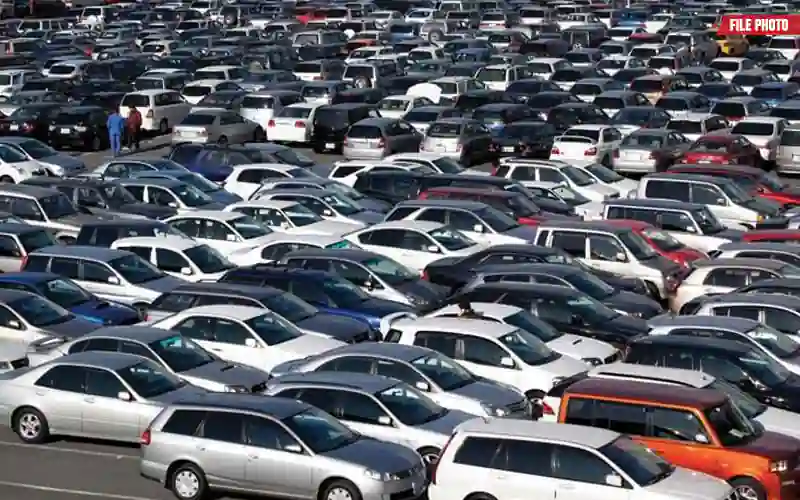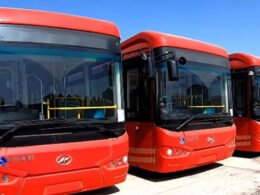A government official on Monday announced that the import of accidental cars will be banned from next month, while a 40 percent new tax will be applied on used car imports once commercial imports open.
According to local media, the measure aims to protect the local automobile industry but delays any direct benefits for consumers from trade liberalization.
The announcement was made during a joint meeting of the Senate Standing Committees on Finance and Industry. Joint Secretary Trade Policy Mohammad Ashfaq briefed members on the policy. He said that accidental and low-quality vehicles will not be allowed.
He added that Pakistan, under its agreement with the International Monetary Fund (IMF), has committed to providing additional tariff protection of 40pc for new cars in this fiscal year.
The IMF has required Pakistan to allow commercial imports of used cars up to five years old starting September. By July next year, age and import restrictions must be fully lifted.
Over the next four years, the 40pc additional tariff will gradually reduce to zero. Later, imports of six to eight-year-old vehicles will also be allowed. Standards will be enforced to prevent environmental hazards caused by old vehicles.
Existing import practices
Currently, commercial imports of cars are banned. Instead, vehicles enter Pakistan through schemes such as transfer of residence, baggage, and gift.
These schemes are often misused, providing nearly one-fourth of total car demand. Consumers largely prefer imported mildly damaged cars over locally produced vehicles due to price and quality differences.
Tariff reduction roadmap
Ashfaq explained that Pakistan must cut overall import tariffs from 20.2pc to 9.7pc over five years, a 52pc reduction. In the first year (FY26), the tariff rate will fall to 15.7pc. Customs duty will be lowered to 11.2pc, additional customs duty to 1.8pc, and regulatory duty to 2.7pc.
Additional customs duties will be removed within four years, regulatory duties within five years, and exemptions phased out within five years. By 2026, only four tariff slabs will remain, with a top rate of 15pc.
Local Industry Concerns
Representatives of the Pakistan Automotive Manufacturers Association (PAMA) and Pakistan Association of Automotive Parts and Accessories Manufacturers (PAAPAM) strongly opposed the decision.
They argued that lower duties on imported used cars will severely hurt local production. Both associations also gave presentations to the standing committee to highlight their concerns.
Indus Motors Position
Ali Asghar Jamali, CEO of Indus Motors, told the committee that high government taxes are the main reason behind rising car prices. He provided detailed figures:
- Small cars face 30pc tax, including Rs32,935 under the new combustion engine levy.
- The Altis model carries 44pc taxes.
- Light Commercial Vehicle (LCV) pickups face a 60pc tax burden.
- A vehicle priced at Rs18.8 million includes Rs11.3 million in taxes.
- The Toyota Fortuner SUV costs Rs24.42 million, of which Rs14.8 million (61pc) is tax.
Jamali admitted that local cars only offer two airbags compared to six in imported cars. However, he argued that quality is the same.
He also admitted that local marketing has failed, creating a perception that assemblers are exploiting buyers.
Suzuki’s Position
A representative of Pak-Suzuki Motors, a Japanese national, stated that local production is no longer viable. He said it is now cheaper and easier to import cars rather than produce them locally. He also pointed out the heavy costs and effort required for local production.
Read More: Pakistan allows duty-free car import for disabled persons
Jamali sparked debate by saying that job creation is not the responsibility of the private sector but of the government. His statement directly contradicted Finance Minister Muhammad Aurangzeb’s position that the private sector must generate jobs.
Senator Aon Abbas, chairman of the standing committee on industry, questioned IMF’s role in shaping policies that directly affect Pakistani consumers.
Senator Muhammad Abdul Qadir supported the government’s stance, stating that reduced protection for local industry will increase efficiency and raise safety standards.
Committee members criticized local manufacturers for charging extremely high prices while offering low-quality vehicles. They rejected claims that locally produced cars matched imported vehicles in quality.











